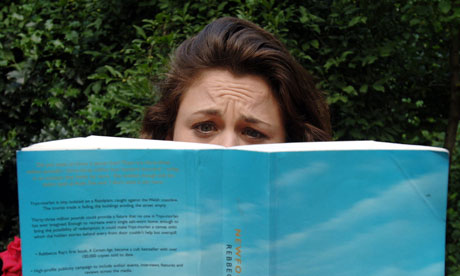Professional Book Reviews
Arranging to receive advance galleys proofs of books from
publishers--only 20 or so at first, but eventually nearly every firm of
any size in the industry--Kirkus read the galleys and wrote brief,
critical evaluations of their literary merit and probable popular
appeal. Initially, the reviews were sent only to subscribing bookshops
in the form of a bimonthly bulletin. Bookstore managers were thus given
an informed and unbiased opinion on which to base their orders and
promotions. Two years later, the service was also made available to
libraries. One popular complaint is that book reviews are merely a byproduct of the
publishing industry and therefore stink of mediocrity, elitism,
nepotism, or all three. In 1846, Poe wrote that book reviews (and the
publishing industry) were a sham and riddled with nepotism: "We place on
paper without hesitation a tissue of flatteries, to which in society we
could not give utterance, for our lives, without either blushing or
laughing outright." In 1917, H.L. Mencken bemoaned the "inconceivable
complacency and conformity" of journalistic criticism. Forty years
later, Elizabeth Hardwick echoed these sentiments when she said of
reviewing, "Sweet, bland commendations fall everywhere upon the scene; a
universal, if somewhat lobotomized, accommodation reigns."

.jpg)






No comments:
Post a Comment